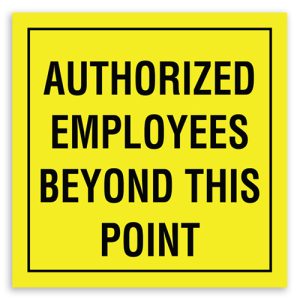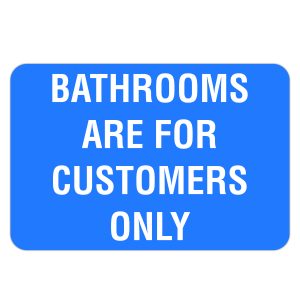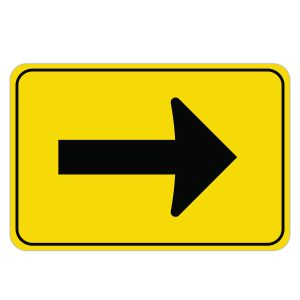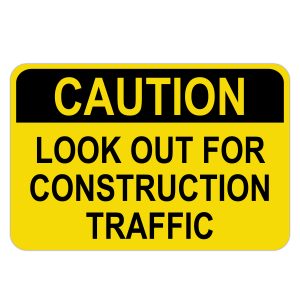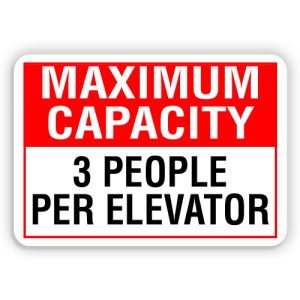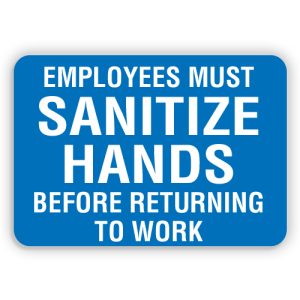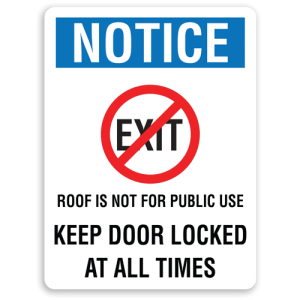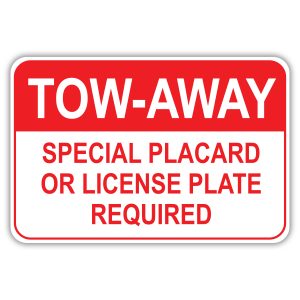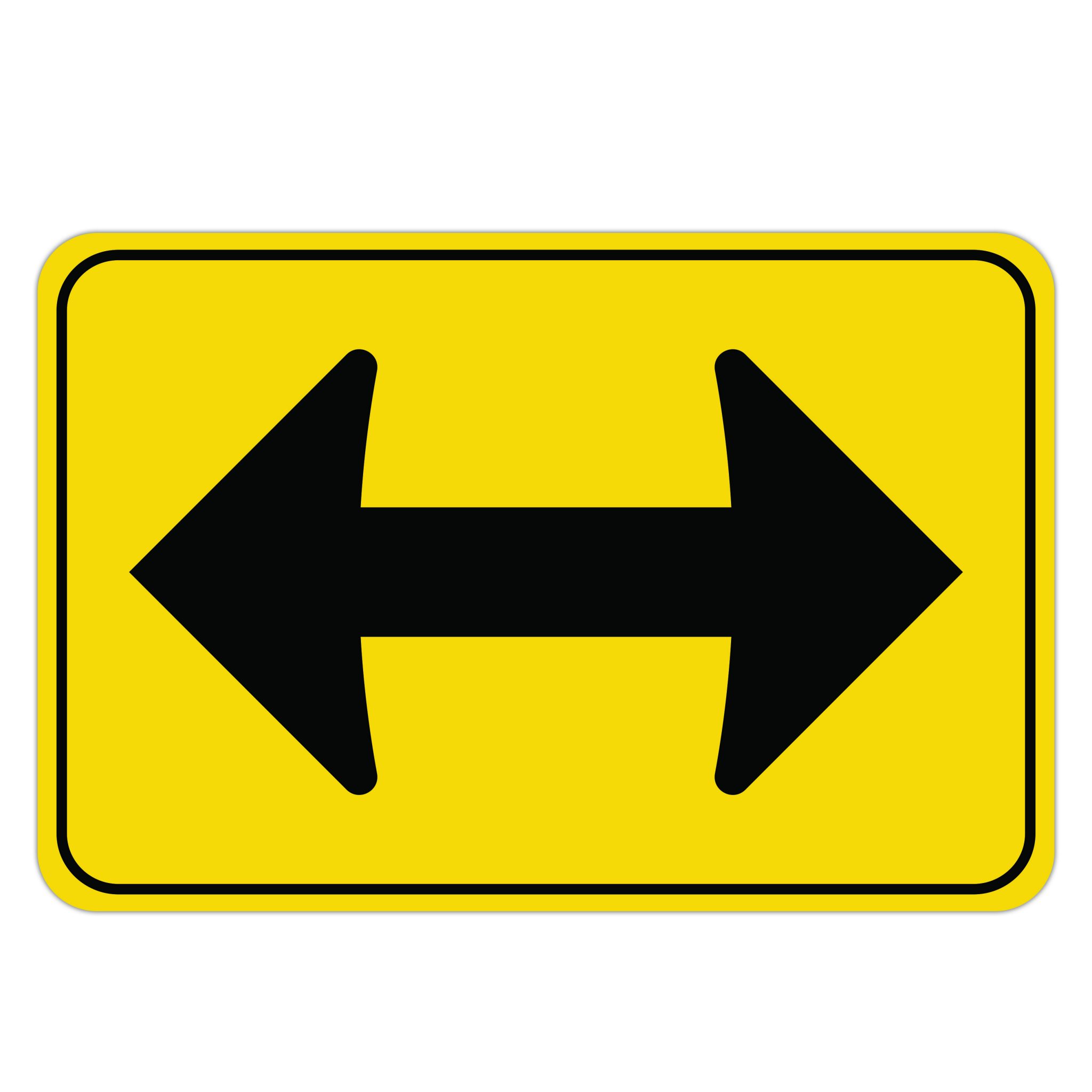
18 Types of Signs You Need for a New Business
Photo from americansigncompany
Originally Posted On: 18 Types of Signs You Need for a New Business – American Sign Company
When starting a new business, it can be overwhelming to realize how many individual tasks you have to do to get ready for your grand opening. If you sit and dwell on it, you could even find yourself paralyzed by the sheer magnitude of it. No one ever said opening a business was for the faint of heart, but that doesn’t mean it should be a grim, stressful affair. In the best-case scenario, there should be an element of passion and joy driving your work. Uncertainty is to be expected, but it can turn into a speed bump instead of a green light. To help you make the shift, we’re going to talk about which types of signs you need for a new business.
Mind you, we’re not talking about your actual store sign or any signs you might want to place by the roadside to attract customers to your business. Those are important, but that’s a subject best saved for another day. Right now, we want to talk about the signs you need to improve your customer experience, stay in compliance with various regulations, and ensure that your business looks professional and welcoming. The world of signage is a vast one, but you can navigate it with the right tools.
First off, you should know which mistakes to avoid.
Posting Signage: Five Common Errors to Avoid
We’re going to go into detail about the types of signs you need for your new business, but let’s first take a moment to discuss some of the most common mistakes entrepreneurs make when outfitting their businesses with these signs. Here are five you should strive to avoid:
Posting Them in the Wrong Place: Putting signs up in the wrong location can be as big a mistake as failing to put them up at all. In fact, it may actually increase customer confusion and contribute to an unprofessional environment. Worse yet, it could put you out of compliance with local codes and requirements.
Buying Them Too Small: When you purchase signage for your business, you want it to be large enough and posted conspicuously enough to be immediately visible. If customers have to squint to read the sign, chances are they’re going to miss it entirely. Not every sign is for customer interaction, of course, but inspectors will also require that your warning mandates meet certain size requirements.
Getting Too Cute: Customers generally like it when the stores they shop at have a certain “personality” to them, but there’s such a thing as taking this concept too far. When every sign in your business contains a joke or a meme, you may need to step back and make some adjustments. A little humor goes a long way, so don’t overdo it.
Including Too Much Information: Signs should ideally be short, simple, and to the point. If a sign in your business exceeds six or seven words, it’s going to lose much of the impact it could have otherwise had. If the message is important enough to require that much space, consider imparting it in a different way. Otherwise, look for a sign that keeps the message brief.
Going Too Cheap: While American Sign Company is proud to offer professional signs at bargain prices, there is such a thing as going too cheap. If you’re tempted by printable messages and other shortcuts, consider how these signs will look to your customers. You don’t want to give off the wrong impression.
Now that we’ve got that important subject covered, let’s move on to the main event: The 18 types of signs every new business should consider posting in their store, restaurant, or retail establishment. Some of these signs are required by law while others are necessary to help customers find what they’re looking for. Used correctly, signs can liven up your business, eliminate confusion, and give your store a professional look that makes a great impression on everyone who walks in the door.
#18 – Exclusive Entry Signs
While a business needs to post signage to let customers know where they should go, it’s also important to put up signage telling customers where they should NOT go. Exclusive entry signs are the perfect remedy for wandering guests who are ready to open any door just to see what’s lurking on the other side. In many cases, that something could be privileged information that should not be viewed by the public. In others, a door may block customers from going into an area that is dangerous for some reason. And in many cases, you may just want to prevent your guests from sauntering into an area reserved for employees. These signs can help you achieve all of these goals and then some.
#17 – Bathroom Signs
It’s probably not your first area of concern as a business owner trying to get a new venture off the ground, but even though your restrooms are not bringing in any income, they are a vital part of your overall presentation. Not only does this mean you should post clear signs directing guests to the bathrooms themselves, it means you should keep the facilities clean, well-maintained, and professional. Bathroom signs help you enforce good practices on the part of your employees (wash hands before returning to work, and so on), and they let your customers know that you run a tight ship.
#16 – Directional Signs
Sometimes referred to as wayfinding signs, directional signs are a must for any new business. If you’re running a very small convenience store, perhaps you can get away with a minimal amount of wayfinding signage. But if you’re in charge of a space much larger than that, you need to take customer confusion into account when deciding on the signs you require. When in doubt, use more signage. It’s better to overdo it (slightly) than to have customers grow frustrated with their inability to find what they’re looking for.
#15 – Construction and Maintenance Signs
If you’re running a business that’s centered around building and construction, this category hardly requires mentioning. But even if you intend to open a nice, quiet shop, you’ll want to give serious consideration to buying a few construction and maintenance signs. You never know when a leaky pipe in the restrooms or a falling ceiling behind the counter will require repairs. Bad enough that you have to work around this inconvenience; even worse if you have to delay repairs while you wait for the appropriate signage. It’s best to have these signs on hand so that the work can proceed quickly and safely.
#14 – Educational Signs
Do you carry items in your store that could use a little explaining? Educational signs (sometimes known as explanatory signs) can give you a platform from which to do some soft selling right there on the aisle. A simple sign telling customers a bit about an unusual product can do wonders when it comes to heightening engagement and improving ROI. If you have inventory that’s been gathering dust on the shelves for months, it could be that the market has spoken. On the other hand, it could just mean that you need to give the products a little push. A nice educational sign might do the trick.
#13 – Not An Exit Signs
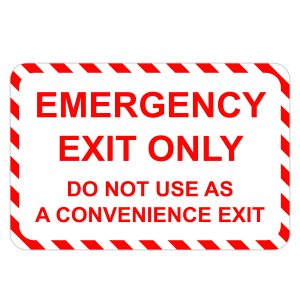
While there are many signs a new business needs to succeed, there are other signs that have nothing to do with improving customer relations…and yet, are every bit as necessary. More so, in fact. Not An Exit signs are an example of the regulatory signage that inspectors may require you to post. By hanging these on doors likely to be confused for an exit to the outside during an emergency situation, you can improve the safety of your building, protect your workers and guests, and ensure that you are in compliance with the OSHA standards that apply to your business.
#12 – Elevator Signs
Does your business occupy two or more floors, connected by an elevator? If so, you’ll want to make sure you have a full supply of elevator signs that cover all of the relevant bases: Directional signs ushering customers to the elevator, maximum capacity limits, signs displaying a phone number to call in the event of a breakdown or emergency, and other informational signs can help make your elevator a safe, comfortable experience for all of your guests. Check with your local regulators to determine which signage you must post in your elevators.
#11 – Hand Sanitization Signs
We touched on this subject briefly in our section on bathroom signs, but it’s worth another look. Hand sanitization signs are exceptionally important in the restaurant industry, where customers want extra reassurance that things are being done in a sanitary and hygienic manner. They are also important in any industry where employees are working with hazardous materials and chemicals. Having these on hand (and on the walls) can provide your workers with a daily reminder about the importance of hand-washing.
#10 – Keep Door Closed Signs
Like the “not an exit” signs we mentioned before, Keep Door Closed signs may fall under the regulatory requirements that apply to your business. Fire inspectors will mandate the use of this sign if there are any rooms in your building where flames should be contained in the event of an outbreak. If you are storing flammable or explosive liquids, for instance, you may be required to keep them in a specific room with a Keep Door Closed sign on the outside. The hope, of course, is that if a fire does begin in that room, it won’t spread to the rest of your business.
#9 – Parking Signs
We could fill a small book with this category – that’s how important parking signs are to your new business. Keeping a clean, orderly parking lot is vital when it comes to customer relations. After all, it’s the first thing people will notice about your business. Do you want your customers to get irritated before they ever walk into your shop? Then make sure you have plenty of parking signs that label your spaces, keep speeding to a minimum, provide crosswalks for pedestrians to travel, and keep unauthorized persons from taking up the available spaces.
#8 – ADA Signs
Subsequent to the passing of the Americans With Disabilities Act in the 1990s, businesses were required to make certain accommodations for disabled workers and guests. Included in these requirements are ADA signs that properly label the accessibility measures you’ve taken. The most common and recognizable sign, of course, is the one that labels a handicapped parking space. But you may also need to post signage in your restrooms, exterior, and interior of your business to meet benchmarks set forth by the law.
#7 – Visitor Signs
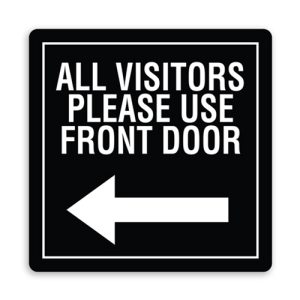
A small shop may have little need for special visitor signs, but larger businesses with more than fifty employees will almost certainly require them. At a certain point in a business’s growth, it becomes difficult to manage – and keep separate – spaces for workers, customers, and visitors. To help, use signage that denotes certain areas and behaviors for visitors. For instance, a “Visitors Must Sign In at the Office” sign can help make sure you don’t have unauthorized people wandering all over the property.
#6 – Public Health Signs
If it showed us nothing else, the year 2020 demonstrated clearly the need for every business to have public health signage available when the need arises. We’re certainly crossing our fingers in hopes that the COVID pandemic (or the worst parts of it) is behind us now, but we can’t know for sure. Prominent experts warn that we could still be dealing with some aspects of this disease well into 2022, so business owners have to be prepared for that possibility. Social distancing signs and mask recommendations could turn into our new normal.
#5 – Waiting Room Signs
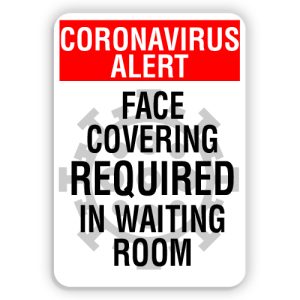
If your business involves meeting with customers or patients on an appointment basis, you’ll probably need a waiting room. It pays to invest time and money into making your waiting room as welcoming, friendly, and comfortable as possible. With the right waiting room signs, you can keep your guests informed, entertained, and occupied while they wait for their appointment. If your business caters to children, it is even more important to make sure that the waiting room is lively and enjoyable. Games and books can help with this, but don’t overlook the importance of simple, clear signage. It matters.
#4 – Entertainment Signs
You’ll remember that, at the outset of this piece, we cautioned against getting “too cute” with your signage. We stand by that suggestion when it comes to most of your signs, but there is room for an exception. If you run a business that would benefit from a jaunty, whimsical reputation (a sports bar would be an obvious example), don’t hesitate to use your signage to entertain your guests, make them laugh, and otherwise connect with your branding.
#3 – Employees Only Signs
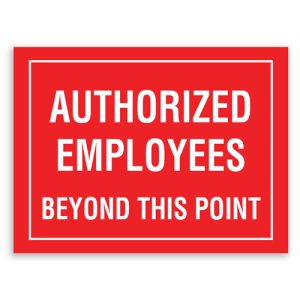
As we mentioned above, it’s important to have spaces in your business that are set apart for visitors and other guests. In the same way, it’s also good to have areas in the building that are off-limits to customers. With Employees Only signs, you can keep customers out of these areas and away from dangerous materials, heavy equipment, and even private “for your eyes only” background documents that you don’t want leaking to the public. Plus, your employees need a place where they can take a breather and have a moment to themselves.
#2 – Open/Closed Signs

This is one of the most fundamental signs any new business needs. Most stores will have a sign like this on their front door, but we’re continually amazed at the number of stores we see without them. If you haven’t yet gotten around to hanging an Open/Closed sign on your door (or at least a list of your days and hours), we highly recommend remedying the situation immediately! It doesn’t take much of a push for a happy customer to become a disgruntled one, and confusion about your opening times could easily be enough to trigger the transformation.
#1 – Sale Signs
In-store sale signs are a wonderful way to capture the attention of your customers, spotlight bargain prices, and promote products that you want to start pushing out the door. We always recommend that business owners play around with various sales on a weekly or even daily basis. You want to give your customers something they can get excited about, and sales always seem to do the trick. By changing things up frequently, you keep your customers interested and give them a reason to keep coming back again and again. After all, they never know when the item they really want will go on sale!

